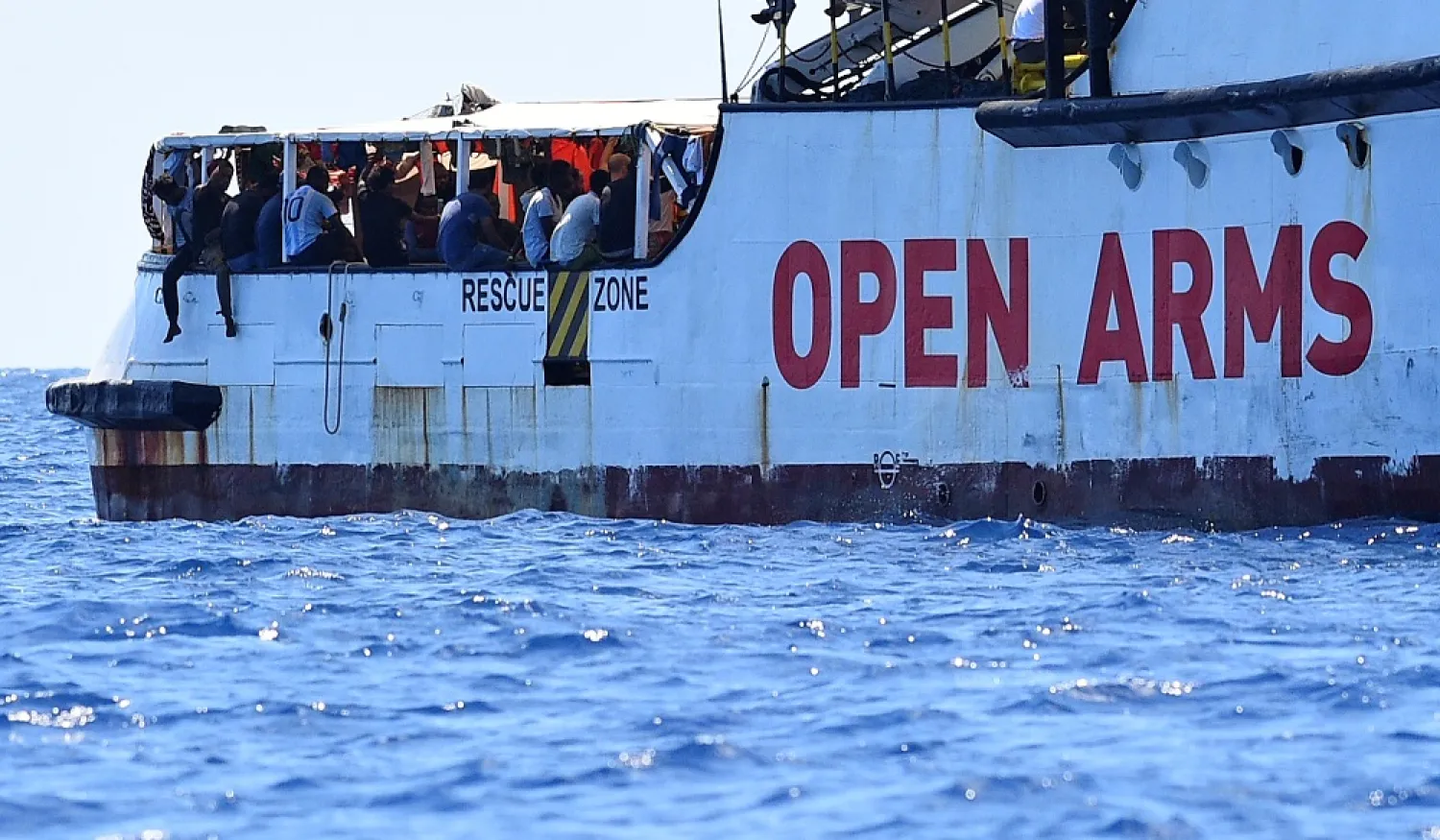The Ocean Viking carrying 356 people, mostly Africans, rescued in the Mediterranean off Libya is closing in on two weeks at sea without being assigned a safe port to offload the traumatized passengers — a situation that charity workers decry as "the new normal" as Europe fails to devise a systematic response.
It "is a complete shame. It is inhumane," Jay Berger, project coordinator for Doctors Without Borders on the Ocean Viking, said by satellite phone to The Associated Press Thursday. "There needs to be concrete action. This is not how people should be treated."
The Ocean Viking conducted four rescues off Libya from August 9-12, and is in its 13th day without being permitted to disembark the rescued people, as dictated by maritime law. The ship, with a stated capacity of 200 passengers, has been sailing between the Italian island of Linosa and Malta, staying out of sight of land as that would only excite the rescued people.
Berger said that the situation on board remains "manageable," but anxiety is growing about what is going to happen. The passengers are becoming increasingly concerned that they will be taken back to Libya, where many suffered torture and detention, he said.
"The longer we are at sea, the harder it is for them to trust us," he said. "Already two weeks is way too long."
So far, there have been no medical emergencies or outbreaks of tension, as was the case on the Spanish rescue ship Open Arms, which disembarked Tuesday night on the Italian island of Lampedusa after a prosecutor ordered the vessel seized as part of investigations into possible charges of kidnapping, failure to provide aid and a safe port.
Unlike the Ocean Viking, the Open Arms had been permitted to enter Italian waters after an administrative court ruled that it could access port. An appeal to that ruling filed by Italy's hard-line interior minister, Matteo Salvini, is still pending.
During the 20-day-long Open Arms standoff, dozens were evacuated for medical emergencies or because they were minors. The situation spiraled out of control after the vessels anchored within sight of Lampedusa, and 15 migrants jumped in the sea on Tuesday seeking to reach land on their own out of frustration. That triggered a resolution as a prosecutor visited the ship and Spain dispatched a Navy ship to escort the Open Arms back Spain.
The 83 migrants that remained on board until the end will be transferred to five EU countries, but the timing remains unclear.
Berger said the Ocean Viking, operated in coordination with SOS Mediterranee, is determined to abide by all laws, and does not intend to force its way "into any territorial waters in any state." That was the case with a German ship operated by Sea-Watch, which forced its way into Lampedusa after 17 days at sea with 40 migrants after declaring a state of emergency on board.
"We are trying our best to abide by the law and proper authorities, that is why we are not forcing our way in," Berger said. But he added that if conditions deteriorate to an emergency, it would be the captain's call to enter the nearest port.
While Malta has refused the Ocean Viking port, Italy has not responded to its requests. But Salvini has made his position clear that no humanitarian rescue ship will be allowed in an Italian port, winning parliamentary backing for tighter restrictions that include fines of up to 1 million euros for any ship that defies him. That move came just days before Salvini triggered a crisis that led to the collapse of Italy's populist government.
On board the Ocean Viking, Berger emphasized that while the ship awaits port, there are no humanitarian rescue ships operating in the central Mediterranean Sea, where some 580 people are believed to have died this year, according to the International Organization for Migration.
While that number is lower than last year's death toll of 1,130 from January through August, the rate of deaths per estimated crossing is higher, according to the IOM.
"If we are not out there saving lives, people will die at sea. This is turning the Mediterranean into a graveyard," he said. "It shows a lack of care, a lack of decency and a level of apathy projected from the EU member states."









